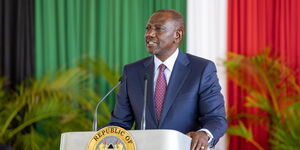The Parliamentary Budget Office (PBO) has in a new report recommended that Treasury clamps down on supplementary budgets and limit them to exceptional cases of unforeseen emergencies.
Supplementary budgets are additional financial plans created by governments to address unforeseen expenses or changes in priorities beyond what was initially allocated, allowing for adjustments and reallocation of funds to meet evolving needs.
In the new report dubbed; Debt Anchor vs Economic Growth: Walking the Tight Rope, PBO attributed the proposal to the burning need to rein in on wanton wastage in government and to spend limited resources prudently.
This, the office said is instrumental especially considering that Kenya is grappling with mounting debt and multiple competing needs.
If adopted, this means that the government will unless when necessary limit its spending to the main budget except in unavoidable situations such as disasters, strikes by civil servants and crucial events in the Kenyan political landscape.
Ministries, Departments and Agencies (MDAs) will also be expected to align themselves with this policy shift.
"Given the current state of the country's economy, amid growing public debt, the government must adopt a practical and efficient approach to fiscal consolidation, limiting supplementary expenditures that require additional spending, except in cases of unforeseen emergencies," reads part of the report.
Economists at the Parliamentary Budget Office believe that such a policy shift will ensure that government efforts to achieve fiscal austerity are not undermined by supplementary budgets that call for more money or additional borrowing.
Per the report, government institutions were misusing Article 223 of the Constitution which gives the national government the leeway to tweak spending plans in certain situations.
"In any particular financial year, the national government may not spend under this Article more than 10 per cent of the sum appropriated by Parliament for the financial year unless, in special circumstances, Parliament has approved a higher percentage," the Article in question reads.
"The misuse of the provisions of Article 223 expenditures, as aforementioned, weakens the trustworthiness of annual planning and budgeting since MDAs appear to avoid rigorous examination in the regular budget process in favour of supplementary budgeting, which permits the approval of additional expenses post facto by the Parliament," reads part of the report.
According to PBO, some of the expenses listed in supplementary budgets can be factored into the original budget.
One example of such expenses is the Ksh1.5 billion requested by the Ministry of Education to purchase land in Ruaraka.
In September 2023, a report from the Controller of Budget Margaret Nyakang'o revealed that 18 MDAs had written to the National Treasury requesting Ksh15.27 billion for various projects.
Nyakang'o expressed her objection especially since this was done barely two months following the approval of the annual budget estimates.












